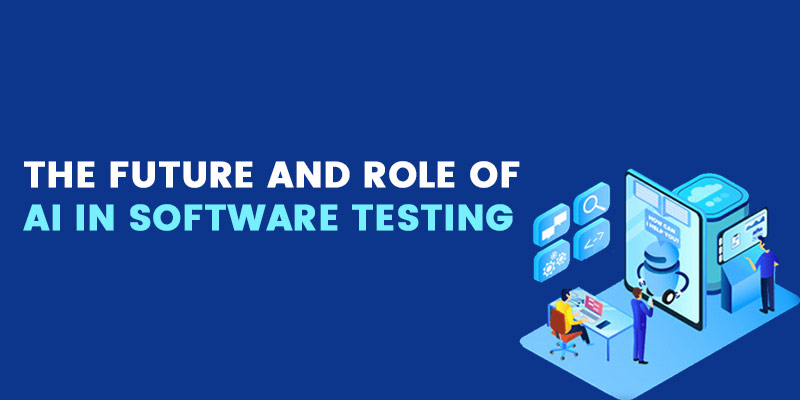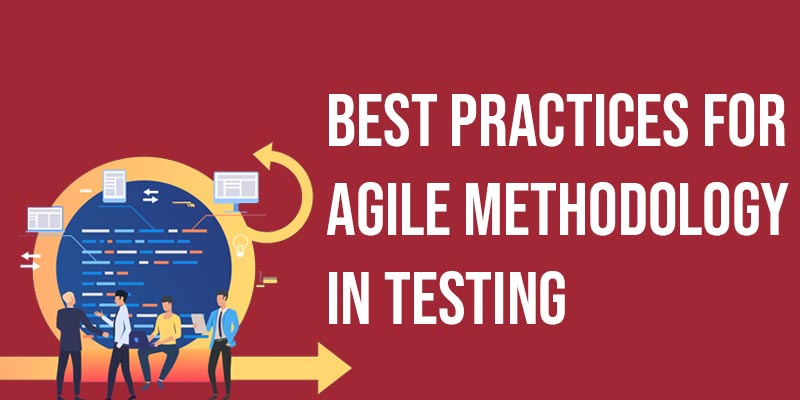Artificial intelligence has a promising future, with the Bureau of Labor Statistics predicting a 31.4 per cent increase in jobs for data scientists and mathematical science professionals, both critical to AI, by 2030.
High-performance technologies have grown in importance in recent years, and one among them is AI. Along with pervasive computing (including the Internet of Things), AI jobs are rising. The machine learning job market is thriving and shows no signs of slowing.
A glance at the technological landscape demonstrates the power of AI in everyday life. These technologies, which range from voice assistants to smart power speakers to high-tech coffee makers, are quickly becoming commonplace. This progression has resulted in a positive shift in AI and machine learning job trends.
If you want to learn more about machine learning, you can join a Machine Learning Course in Chennai, which will help you understand What is ML?, Visualization, Data, Problems, and tools.
The rise of artificial intelligence (AI) is continuing to alter the technological landscape. It is used in various aspects of software development is expanding. Software testing is one area of software development where AI adoption can advance.
Software testing is critical in ensuring that software products meet compliance standards and user quality expectations. However, with so many variables surrounding the use of artificial intelligence, we’ll delve deep.
What Is AI & How Is It Changing the Dynamics of Software Testing?
Artificial intelligence is one of the most overused buzzwords in the digital marketplace. The term “AI” conjures up images of all-powerful supercomputers bent on human destruction, voice-control assistance in the form of Alexa or Siri, computer chess opponents, and self-driving cars.
AI refers to a computer program’s or machine’s ability to think (reason for itself) and learn (collect data and beneficially modify future behaviour). We can see something more meaningful in this definition regarding what AI means for software development tools and technology.
To learn more about ML, you can join a Machine Learning Course in Bangalore, which will help you understand the core concepts of machine learning, Matlab, Linear Classification, etc.
More Software Releases Means More Software Testing
More software releases are expected to hit the software market as the number of developers worldwide continues to rise.
A recent Statistical report confirms this expectation, estimating that the global developer population will grow from 24.5 million in 2020 to 28.7 million by 2024.
This suggests that more software will be released in the coming years. The expected increase in software updates comes with the need for software testing automation. The method of exposing a software infrastructure to a sequence of functional and non-functional testing scenarios is known as software testing.
It is the process of evaluating software to ensure it can perform its intended function efficiently. When team members test software, they can find and fix runtime bugs, scalability issues, security flaws, etc.
The software testing process is typically rigorous, which necessitates the use of automation. However, AI must be included for software automation to be super efficient and seamless.
To have an in-depth understanding of AI, you can join an Artificial Intelligence Course in Chennai, which will help you understand the Artificial Intelligence software, software testing applications and how artificial intelligence is used in automation testing.
AI in Software Test Automation
The use of AI in software development is still progressing. Still, currently used at a lower level in software automated Testing compared to more innovative work areas such as self-driving system applications or voice-assisted control, machine translation, and robotics.
AI in software testing tools aims to simplify the software development life cycle (SDLC). AI can enable automation and reduce the number of daily and tedious tasks in development and Testing by applying reasoning, problem-solving, and, in some cases, machine learning.
Moreover, software testing tools have a significant impact on automation processes. The impact of Artificial intelligence in automation has limitations. When AI is integrated into the software development process, it has no restrictions and thus enables the software developer and tester to work efficiently with software test automation tools.
The introduction of AI has reduced the developer’s manual effort and the developer’s involvement in the development processes. However, human intelligence is required to integrate the task, logic, implementation of the work process, run test automation tool, etc.
Once the automation test process is integrated, any new developer or tester can develop the AI process with a predefined task. Moreover, artificial intelligence software, which has the AI-enabled bot cloud, monitors the current status of the test processes, code changes, and other core metrics to decide the test that needs to be run.
If you are interested in beginning your career in the Software development field, you can join a Software Testing Course in Chennai and learn the core concepts such as the Waterfall model, V model, Incremental model, RAD model, etc.
So, Ai for software development help in decision-making and manage automated software testing at every level.
Purpose of Testing in machine learning and How Machine Learning Enhances AI
What is Machine learning
Machine learning boosts Artificial intelligence by applying algorithms. ML integration with AI allows automatic enhancement by gathering a large amount of data built by Testing.
This is critical for AI because intelligence necessitates changing decisions as learning progresses. On the other hand, machine learning is only used in software testing tools occasionally. Manually fine-tuning an AI-enabled tool to suit the organization using the tool is sometimes the best option. Then, regardless of the outcome, the same theory and logic are applied every time.
In other cases, gathering data is critical to making decisions. Machine learning can be useful because it requires data and then improves or adapts as more data is collected.
For example, code coverage, static data analysis, test results, and other software metrics can provide AI information about the software project’s status over time.
If you want to begin your career in the machine learning field, you can join a Machine Learning Course in Bangalore and learn the core concepts, such as regularisation, Logistic regression, Linear regression, and Kernel regression.
What are the benefits of AI in Test Automation?
It has the following significant advantages:
Identifying the right group of people
Businesses can overcome the challenge of determining the appropriate team and skill set by utilizing AI-based test automation technologies that provide testers with a semi- or entirely scriptless scripting environment.
The amount of time spent on repetitive tasks
Whenever we have a few tasks, the tester or developer may need more time to check whether the code is reusable. Due to this, the team may create the code, which is time-consuming.
Therefore, AI is the best choice to automatically automate the test scripts process. AI tools are automatically trained to generate test scripts for similar projects based on previous project inputs and results.
Flaky Test
The tester spends hours evaluating whether the software realized is a bug- free. If the tester finds any bugs in the software, they try to analyze the application to find the bugs.
These kinds of test failures are known as flaky tests. AI can help teams overcome the difficulties of flaky tests by creating more adaptable test cases designed to detect trends in test case failures to speed up the process.
UI changes necessitate frequent script modifications.
Businesses frequently modify the app’s User Interface to provide a unified user experience (UX) (UI).
Even if the change is minor or undetectable, it may end up causing the test scripts to underperform while managing multiple-page operations.
AI and machine learning algorithms are trained to detect minor changes in code or application problems. These technologies can then take the necessary actions, reducing the requirement for human interference in script updates for such minor changes.
To better understand the Devops process, you can join the DevOps Course in Bangalore and learn the core concepts of devops and its technology.
Keep the test suites and scripts up to date
Keeping track of numerous test scripts becomes difficult as an application grows. Artificial intelligence tools can be used to maintain and retrieve effective testing scripts based on testing standards, allowing AI to overcome this challenge.
As a result, AI is expected to overcome traditional test automation challenges and usher in a test automation revolution.
If you want to acquire core concepts of AI, you can join the Artificial Intelligence Course in Bangalore, Which will help you understand Machine Learning, Deep Learning, Artificial Neural Networks (ANN) and Natural Language Processing.
Beyond Continuous Testing with AI
Everything is based on technology, creating a massive demand for more innovative software. Traditionally, most businesses would release software on an annual basis, but now the release demand for software release has become more significant.
As a result, to break through the acceleration plateau, we implemented Agile and DevOps. Many businesses are debating and attempting to implement Continuous Testing today.
Continuous Testing aims to provide the best user experience, free of defects, and to include a process for testing early and frequently. So, Nowadays, most businesses are attempting to implement Continuous Testing to bridge the current gap.
If you want to become a Devops engineer, you can join a DevOps Course in Chennai and acquire an in-depth understanding of devops technology, DevOps principles and its DevOps Ecosystem.
What are the benefits of integrating it?
- Improve Accuracy
- Go beyond the limitations of Manual Testing.
- Help both Developers and Testers
- Increase overall Test Coverage
- Saved Time + Money = Faster time to Market
What are the various methods for AI-Based Software Test Automation?
The following are the various methods for AI-Based Software Test Automation:
- Regression Suite Automation
- Defect Analysis and Prediction
- Self-healing Automation
Join the DevOps Course in Chennai and learn advanced concepts of Devops technology, such as Linux Administration, Source Control Using Git and Continous Integration Using Jenkins.
Manual Software Testing v/s AI Software Testing
Manual Testing
- Manual Testing is both time-consuming and costly.
- The participation of the software tester is required for manual Testing.
- There will be slow growth in manual Testing.
- Manual Testing is only sometimes 100% precise because it is prone to mistakes.
- Even the most professional software testers are prone to making errors.
Artificial Intelligence Software Testing
- Artificial intelligence saves time and money, resulting in a faster time to market.
- It allows for continuous Testing without requiring much human intervention.
- There will be increased productivity with the help of automated tools in software testing.
What are the top 5 AI tools for automation testing?
The following are the top five most popular AI-powered test automation tools:
- UI Path Test suite
- Sofy.AI
- Tricentis Tosca
- Functionize
- Parasoft
Now that you have understood what is artificial intelligence, AI for software development and artificial intelligence in automation. So, if you want to become a software tester, you can join a Software Testing Course in Bangalore that will help you understand the Software testing life cycle, executing test cases, test reporting and Verification and Validation.



